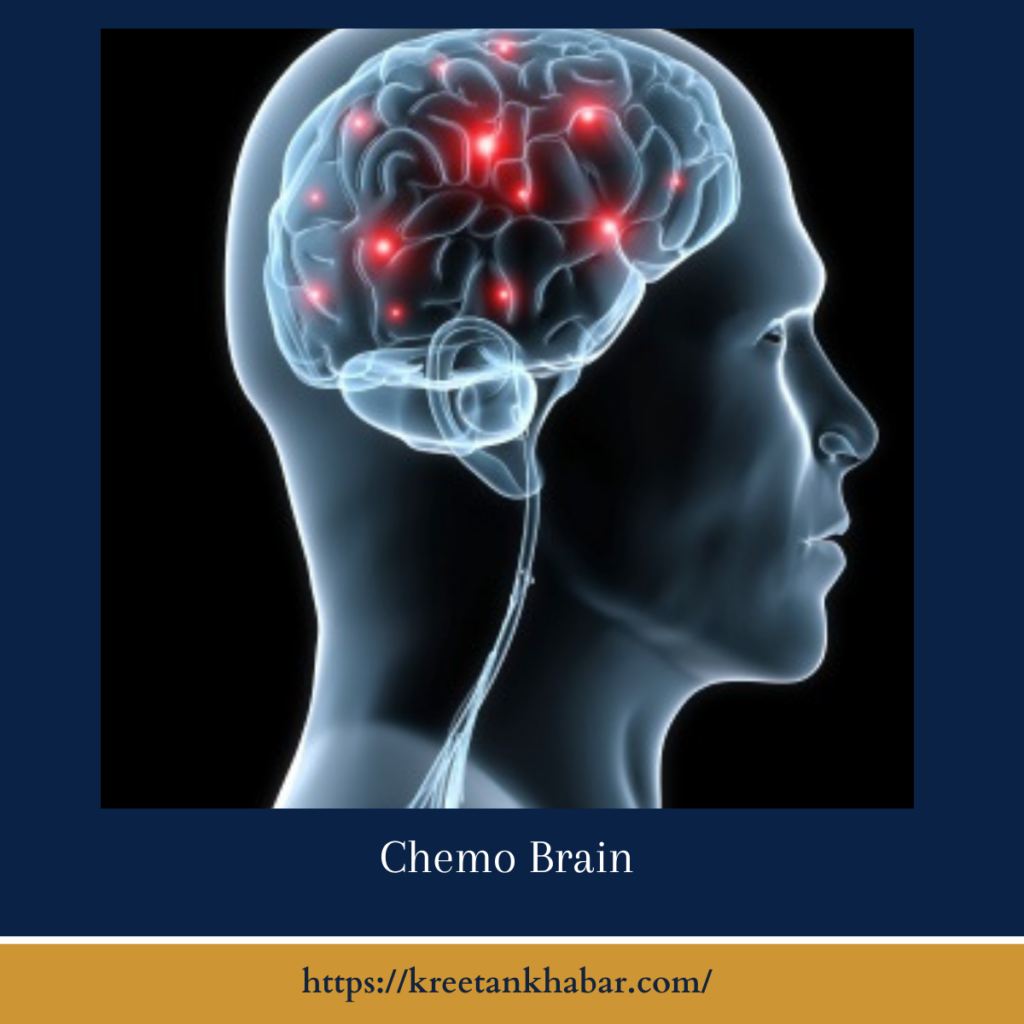Chemo Brain and its Impact on Cancer Patients
Chemotherapy is a cornerstone of cancer treatment, offering hope and often life-saving benefits to countless individuals battling this formidable disease. However, alongside its potent effects on cancer cells, chemotherapy can also exert profound impacts on cognitive function, giving rise to a phenomenon commonly referred to as “chemo brain.” This cognitive fog, characterized by memory lapses, difficulty concentrating, and overall mental cloudiness, can significantly challenge patients’ daily lives during and after cancer treatment.

Unveiling Chemo Brain:
Chemo brain, also known as chemotherapy-induced cognitive impairment or cognitive dysfunction, is a real and often underrecognized consequence of cancer treatment. While the exact mechanisms underlying chemo brain are still being elucidated, several factors are believed to contribute to its development. These include the direct toxic effects of chemotherapy drugs on the brain, inflammation, hormonal changes, and the psychological stress associated with cancer diagnosis and treatment.
Symptoms and Impact:
The symptoms of chemo brain can vary widely among individuals but commonly include:
- Memory problems: Difficulty recalling names, dates, or recent events.
- Attention and concentration difficulties: Feeling easily distracted or having trouble focusing on tasks.
- Slower processing speed: Taking longer to perform mental tasks or make decisions.
- Language difficulties: Trouble finding the right words or expressing thoughts clearly.
- Mental fatigue: Feeling mentally exhausted, even after minimal exertion.
These symptoms can significantly impact various aspects of daily life, including work, social interactions, and overall quality of life. For many cancer survivors, chemo brain represents a frustrating and often distressing aspect of their journey, as they strive to regain a sense of cognitive normalcy in the aftermath of treatment.
Diagnosis and Recognition:
Diagnosing chemo brain can be challenging, as its symptoms may overlap with other conditions or the effects of cancer itself. Healthcare providers typically rely on a combination of patient-reported symptoms, cognitive assessments, and exclusion of other potential causes to make a diagnosis. Despite its prevalence, chemo brain is often underrecognized and undertreated, highlighting the need for increased awareness and proactive management strategies.
Coping Strategies and Support:
Managing chemo brain requires a multifaceted approach that addresses both the physical and psychological aspects of the condition. While there is no single “magic bullet” treatment, several strategies may help patients cope with cognitive challenges:
- Cognitive rehabilitation: Working with a therapist or neuropsychologist to develop strategies for improving memory, attention, and executive function.
- Physical exercise: Engaging in regular physical activity has been shown to improve cognitive function and reduce fatigue in cancer survivors.
- Mindfulness and stress reduction: Practices such as meditation, yoga, and deep breathing exercises can help alleviate stress and enhance mental clarity.
- Support groups: Connecting with other cancer survivors who have experienced similar cognitive challenges can provide validation, encouragement, and practical tips for coping.
Research and Future Directions:
Despite advances in our understanding of chemo brain, many questions remain unanswered. Ongoing research efforts seek to elucidate the underlying mechanisms, identify biomarkers for early detection, and develop targeted interventions to alleviate cognitive symptoms. By fostering collaboration between scientists, clinicians, and patients, we can continue to unravel the complexities of chemo brain and improve the lives of cancer survivors worldwide.
Conclusion:
Chemo brain is a significant and often overlooked aspect of the cancer experience, impacting cognitive function and quality of life for many individuals undergoing treatment. By raising awareness, fostering dialogue, and implementing supportive interventions, we can empower cancer survivors to navigate the fog of chemo brain with resilience, optimism, and hope for a brighter future beyond cancer.
Read also : Exploring the Delightful Boost of the Green Tea Shot 2023